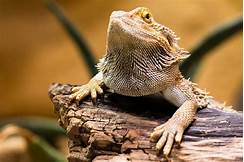What Reptile Makes the Best Pet?
If you're mulling over the concept of having a reptile as a pet, it's pivotal to select one that aligns with your lifestyle and experience level. While there are several species to select from, certain ones are better suited for débutante reptile owners. Let's delve into the traits that distinguish an ideal reptile pet:

Choosing the Right Reptile Pet:
1. Temperament: Consider species that are typically docile and handleable. Avoid reptiles known for aggressive tendencies or territorial behavior.
2. Size: Evaluate the size of the reptile you're contemplating. A smaller species might be a better option for individuals with limited space or experience.
3. Lifespan: Reptiles can live for many years, so be prepared to commit to their long-term care. Investigate the typical lifespan of the species you're interested in.
4. Diet: Determine the reptile's dietary needs and ensure you can provide them with the appropriate nutrition. Some species have specialized diets that may require specific foods or supplements.
5. Habitat: Research the reptile's habitat necessities, including the appropriate temperature, humidity, lighting, and substrate. Ensure you can create a suitable environment for the animal's well-being.
Popular Reptile Pet Options:
1. Leopard Geckos: Renowned for their docile nature and vibrant coloration, leopard geckos are excellent choices for first-timers. They're small, easy to care for, and have relatively simple dietary needs.
2. Corn Snakes: Known for their docile demeanor and hardiness, corn snakes are another great option for novice reptile owners. They're moderate in size and come in a variety of colors and patterns.
3. Green Iguanas: While they can grow relatively large, green iguanas can make great pets for experienced reptile keepers. They're arboreal, meaning they spend most of their time in trees, and require a spacious enclosure with plenty of climbing opportunities.
Additional Considerations:
1. Legal Requirements: Certain reptile species may have specific legal requirements or restrictions in various regions. Research the local regulations before acquiring a reptile pet.
2. Veterinary Care: Make sure you have access to a veterinarian who specializes in reptile care. Regular checkups and appropriate veterinary attention are essential for the health and well-being of your pet reptile.
3. Time Commitment: Owning a reptile is a significant responsibility that requires a substantial time commitment. Be prepared to provide daily care, including cleaning, feeding, and interaction with your pet.
4. Handling: Proper handling techniques are crucial to prevent stress or injury to your reptile. Learn how to handle your pet safely and respect its boundaries.
Conclusion:
Selecting the right reptile pet involves careful consideration of species-specific traits, individual preferences, and the ability to provide proper care. By conducting thorough research and consulting with experienced reptile keepers and veterinarians, you can make an informed decision that will lead to a fulfilling and rewarding reptile-keeping experience.
Declaration: All article resources on this website, unless otherwise specified or labeled, are collected from online resources. If the content on this website infringes on the legitimate rights and interests of the original author, you can contact this website to delete it.






